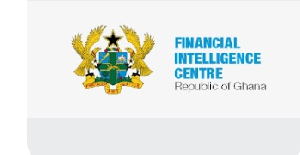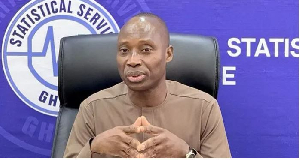Zeqblog Blog of Thursday, 14 November 2024
Source: Okine Isaac
How well do you know about the Financial Intelligence Centre

The Financial Intelligence Centre (FIC), which was established in accordance with Section 4 of Ghana's Anti-Money Laundering Act of 2008 (Act 749) and its later revisions, is essential to the fight against financial crimes like money laundering, funding of terrorism, and financing of proliferation. The FIC plays a crucial role in protecting Ghana's financial integrity and stopping the abuse of financial systems for illicit purposes as the country's recognized body for receiving and evaluating reports of suspicious transactions.
As a body corporate, the FIC can retain property, have a legal identity, and enter into agreements to help carry out its functions. The Center's main responsibility is to collect, examine, and share intelligence about questionable financial activity, particularly that which may point to money laundering or the funding of terrorism. The appropriate authorities, such as law enforcement and regulatory agencies, are informed of this information and can use it to look into and punish financial crimes.

The FIC works with a variety of organizations known as Accountable Institutions and Designated Non-Financial Businesses and Professions (DNFBPs) to carry out its purpose. Professionals and companies such as attorneys, accountants, notaries, auctioneers, religious institutions, real estate developers, gambling establishments, and dealers in precious metals, gemstones, and automobiles fall under this group. In order for the FIC to recognize possible risks and take preventative measures, these organizations must notify it of any questionable financial activity.
The activity of the FIC is not limited to Ghana; it is part of a global network that includes the Asset Recovery Inter-Agency Network West Africa (ARIN-WA), the Egmont Group, and the Inter-Governmental Action Group against Money Laundering in West Africa (GIABA). The FIC is better equipped to safeguard Ghana's financial system by taking part in these networks and international conferences, which provide it with knowledge of new developments in financial crime. The Center is better equipped to combat intricate, international financial crimes because to these partnerships, which provide it access to crucial data on criminal networks that operate beyond national boundaries.
The FIC has strengthened Ghana's anti-money laundering and counter-terrorism financing (AML/CFT) framework through a number of initiatives since its founding. The Center has enhanced the tracking and reporting of suspicious transactions by utilizing cutting-edge tools such as go-AML. With the help of important stakeholders, such as law enforcement, regulators, the private sector, and DNFBPs, the FIC's team of highly qualified specialists continues to address money laundering and terrorism funding challenges.
The FIC is committed to safeguarding Ghana's financial stability under the direction of CEO Kwaku Dua. The Center has achieved great strides in preserving the country's financial system, promoting economic stability, and bolstering national security through its proactive strategy and cooperative efforts.
This succinct observation emphasizes the Financial Intelligence Center's crucial role in Ghana's battle against financial crimes and its dedication to security, cooperation, and transparency in the financial industry.
Source: Graphic Online














